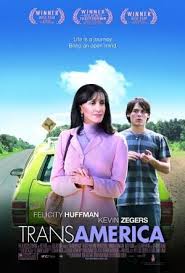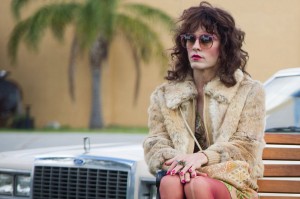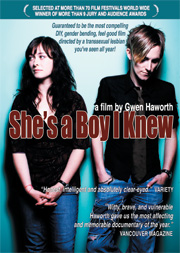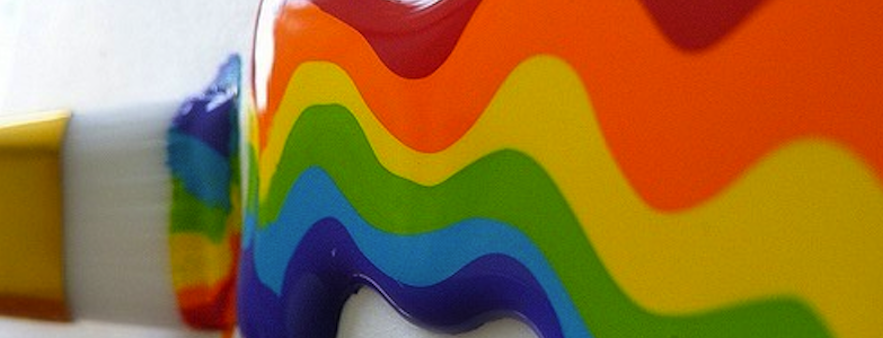
LGB is everywhere: music, TV shows, movies, TD ads on the back of Xtra. But where is the trans representation? Marches and protests, and Laverne Cox on the cover of time, for her one character in that one show, yes. General representation? Not so much…
Mainstream media has started to adopt a more average view of the LGB part of our community. It’s something have been fighting for for decades, and is still just controversial enough to get the masses riled up. Transgendered individuals are a topic the media still seems anxious to avoid, unless you’re Katie Couric.
When we do see trans depictions, it’s often as a farce, or the not-quite-successful switch. Drag is fun, sure, but how is it playing with, and at, gender vs. living it?
There are a few instances of characters in TV shows: Cold Case (S02E03 “Daniela”) Nip//Tuck (various through multiple seasons).

TransAmerica is lauded as being an excellent representation of a transwoman’s journey, represented in her physical hurdles she has to jump through crossing the country with her son, and the discrimination she still faces from her conservative family.
Meanwhile , Jared Leto is being torn down for never once acknowledging the trans community in interviews or acceptance speeches for his role in Dallas Buyers Club. It takes Fallon Fox, in Time, to point out they could have a (gasp!) real-life transwoman! So there are characters starting to pop-up, especially in these “based on real life!” type stories. But where’s the agency for trans people to see people like them — people who are trans, themselves — telling their stories?
, Jared Leto is being torn down for never once acknowledging the trans community in interviews or acceptance speeches for his role in Dallas Buyers Club. It takes Fallon Fox, in Time, to point out they could have a (gasp!) real-life transwoman! So there are characters starting to pop-up, especially in these “based on real life!” type stories. But where’s the agency for trans people to see people like them — people who are trans, themselves — telling their stories?
On the other hand, does this mean it’s ok for ciswomen to play transwomen, but not cismen? Or is it a changing of the times, and perception? If the latter, can we still appreciate the appreciation we had to TransAmerica, back when it was made?

There have been a few documentaries and interviews of people who transition. And there are thousands of “personal journey” stories on YouTube.
YouTube has been integral in creating a space where all members of the LGBT(etc) alphabet soup can post things about themselves, their struggles, and their communities. So while we are still having trouble finding examples of ourselves in mainstream, televised media, we are able to make some of our own.
Visual media, like written, is becoming more hands-on than ever before, thanks to the likes of YouTube, fanfiction.net and Archive of Our Own (AO3), blogging and social media outlets, and other platforms that provide user-made content. Being “internet famous” is part of our vernacular, and having stardom made off rants or videos is not out of the norm, anymore. Giving us all a voice has made it possible for the marginalized people in our communities to create a platform for themselves, without having to rely on what the few popular representative might say. All too often, we still look at someone and ask for their perception, considering a generalized group opinion. Thankfully, this practice is being challenged more and more often by those being asked. We can continue this progression, and work toward a broader, more diverse presentation of trans persons in our mass media.
